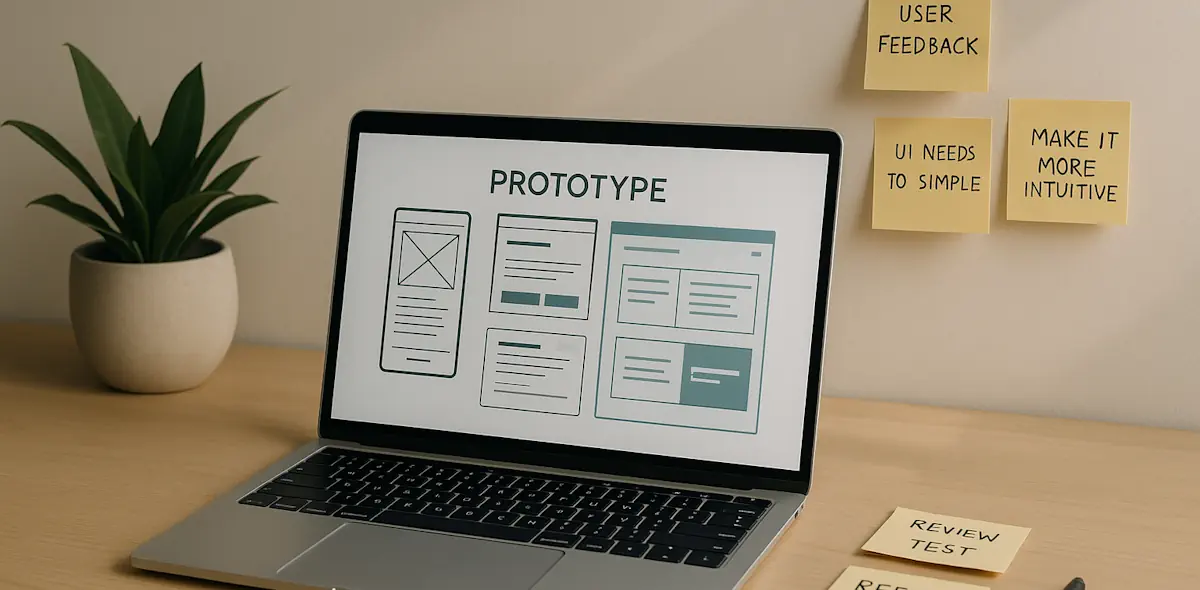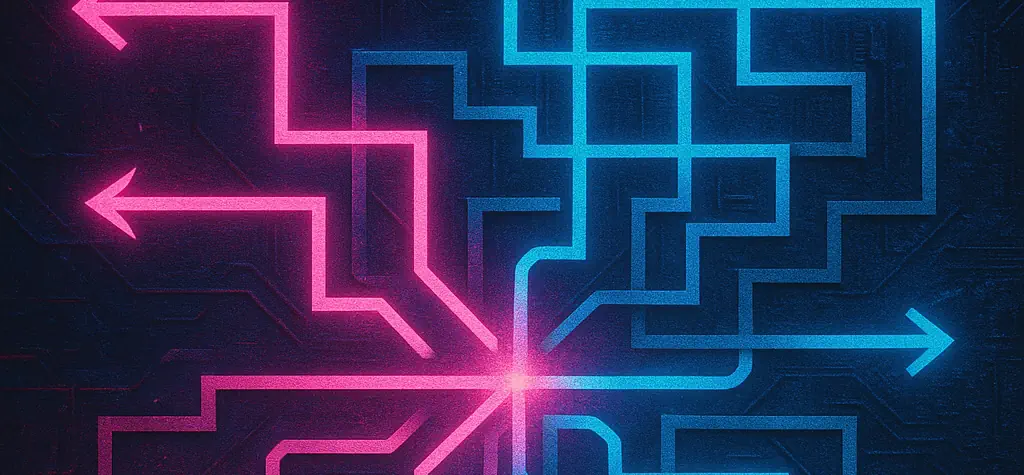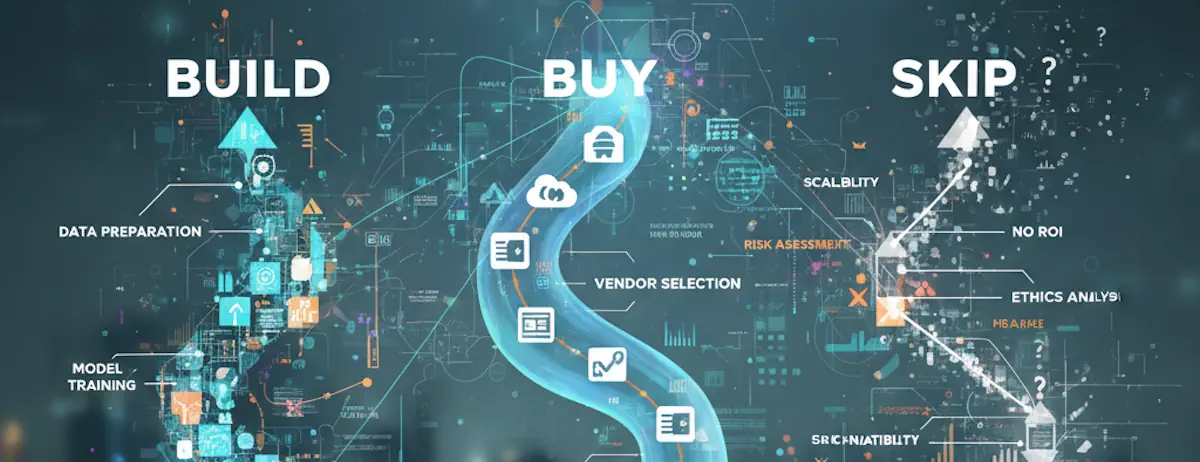The Courage to Say 'I Don't Know Yet'
Why being comfortable with uncertainty is a life skill that unlocks growth.

I’m building something entirely new. No roadmap, no guardrails, no “this is how it’s usually done” to fall back on.
Six months ago, this would have sent me into analysis paralysis. Today? I’m energized by it.
The difference isn’t that I learned something new. I remembered something I’d forgotten. After years in established organizations with proven processes and legacy technologies, I had to brush the dust off my entrepreneurial instincts—that love of the unknown that once drove me.
When Uncertainty Becomes Your Enemy
Research shows that discomfort with ambiguity—what psychologists call “intolerance of uncertainty”—is a fundamental driver of anxiety. According to recent studies, when we can’t predict outcomes or don’t have all the information, our brains interpret this as a threat. Situations marked with ambiguity, whether complex information, novelty, contradictory information, or missing information, lead to aversion by highlighting feelings of fear, stress, or threat.
But here’s what I’ve learned: that discomfort isn’t a bug in your system. It’s a feature.
Think about the last time you avoided a challenge because you weren’t sure you could succeed. Maybe it was a project at work, a difficult conversation, or even something as simple as trying a new restaurant. That avoidance? It wasn’t protecting you from failure—it was protecting you from learning.
The Science of Getting Comfortable with Discomfort
Tolerance of ambiguity isn’t just a stable personality trait—it can be developed over time. The research is clear: people who develop higher ambiguity tolerance show enhanced problem-solving abilities, better decision-making processes, and more innovative thinking.
But the benefits go deeper than professional success. Studies show that people who are tolerant of ambiguous uncertainty are more likely to engage in prosocial behaviors—they cooperate more, trust more, and connect more meaningfully with others. When you’re comfortable with not knowing, you become more curious about other people’s perspectives instead of defensive about your own.
Three personality factors predict how well someone handles ambiguity:
- Openness to experience - curiosity about new ideas and situations
- Emotional stability - managing anxiety when facing uncertainty
- Growth mindset - believing abilities can be developed through effort
The good news? All three can be strengthened.
“The view you adopt for yourself profoundly affects the way you live your life.”
— Carol Dweck, Mindset researcher
Practical Steps to Build Your Uncertainty Muscle
Start Small, Think Big
Don’t jump into life-changing unknowns. Practice with low-stakes ambiguity:
- Take a different route to work without GPS
- Order something new at a familiar restaurant
- Start a conversation with someone you don’t know well
Why this works: You’re training your brain that uncertainty doesn’t equal danger.
Reframe the Story You Tell Yourself
Instead of “I don’t know what I’m doing” (threat story), try “I’m figuring this out as I go” (learning story). Research consistently shows that students who view challenges as opportunities to develop ability rather than prove ability show remarkable resilience in the face of setbacks.
But here’s where it gets tricky: There’s a fine line between productive uncertainty and imposter syndrome. When “I don’t know” becomes “I don’t belong here” or “Everyone else knows what they’re doing except me,” you’ve crossed from healthy ambiguity tolerance into self-doubt territory.
The difference? Productive uncertainty focuses on the situation: “This is new territory, and I’m learning.” Imposter syndrome focuses on you: “I’m not qualified to be here.” One energizes exploration; the other paralyzes it.
Recent research confirms this connection: healthcare professionals with imposter syndrome show significantly lower ambiguity tolerance. Almost half of early-career professionals experience imposter feelings, which can lead to decreased job satisfaction, burnout, and psychological distress—the exact opposite of what we’re trying to achieve.
Focus on What You Can Control
When everything feels uncertain, anchor yourself in what you can influence:
- Your preparation and effort
- How you respond to new information
- The questions you ask
- The help you seek
Celebrate Learning Over Knowing
Track moments when you discovered something by not knowing first. Keep a “confusion to clarity” journal. When you write down “I was confused about X, then learned Y,” you’re building evidence that uncertainty leads to growth.
Self-check: If you find yourself thinking “I should already know this” or “Everyone else gets it,” pause. Ask yourself: “What would I tell a friend in this situation?” Usually, you’d say something like “Of course you don’t know—you’re learning something new.” Give yourself the same grace.
Why This Matters More Than Ever
I used to think uncertainty was something to minimize or eliminate. Plan better, research more, reduce the variables. But that approach only works in static environments. When you’re building something new—whether it’s a career change, a relationship, a business, or just a better version of yourself—uncertainty isn’t a side effect. It’s the main ingredient.
Modern workplaces are characterized by rapid globalization, technological advancement, and workforce diversity, creating upward spirals of novelty, complexity, and change. The ability to operate effectively in ambiguous situations isn’t just nice to have—it’s essential.
The people I know who seem to thrive aren’t the ones who avoid uncertainty. They’re the ones who’ve learned to dance with it.
The Uncomfortable Truth About Comfort
Here’s what no one tells you about getting comfortable with uncertainty: it doesn’t mean you stop feeling uncomfortable. You just get better at staying curious when you do.
Every time you choose to engage with something you don’t fully understand, you’re making a bet that learning matters more than looking like you already know. That’s not just courage—it’s growth mindset in action.
The next time you catch yourself saying “I don’t know,” try adding “yet.” Then ask yourself: what’s one small step you could take toward finding out? Because the alternative—waiting until you know everything before you start anything—isn’t safety. It’s just a very sophisticated form of standing still.








